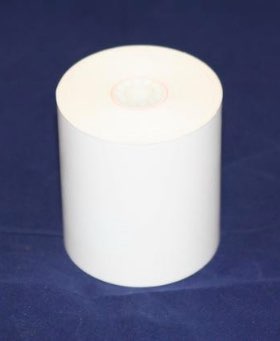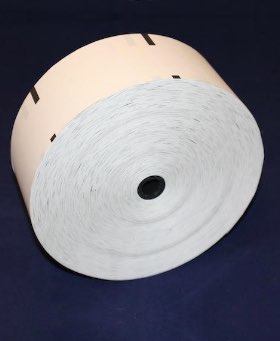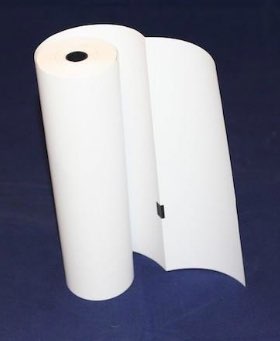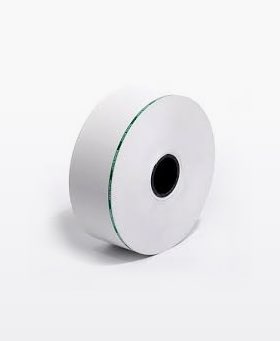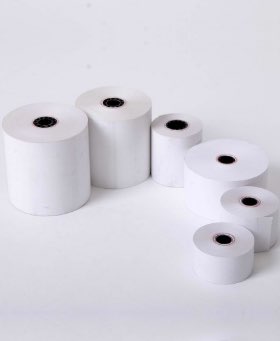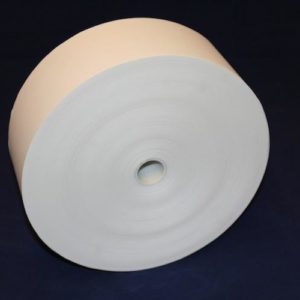
Discuss How To Handle Thermal Papers To Minimize Dermal Exposure To Bisphenol A And Its Alternative Chemicals.
Thermal paper is used in various industries, such as healthcare, retail, and hospitality. It is typically coated with bisphenol A (BPA) to allow the printing of images onto the paper. However, BPA can be absorbed through skin contact and may pose health risks. Therefore, it’s important to consider the potential risks of handling thermal paper.
Fortunately, manufacturers now offer BPA-free thermal paper as an alternative. This type of paper is free from bisphenol A and its derivatives. As a result, skin contact with this product should be fine for individuals working in industries that utilize such products. Further, the absence of BPA means no environmental risks are associated with this paper’s disposal. Individuals should use BPA-free products to reduce the thermal paper’s potential health and environmental risks.
What is thermal paper, and how does it impact dermal exposure to Bisphenol A & its alternative?

Thermal paper is a type of paper specifically designed to be used in thermal printers. It responds to heat-based inkless printing, releasing its dye when exposed to specific temperatures generated by the printer. Thermal paper is important in modern society as it is widely used as receipts and tickets due to its convenience and cost-effectiveness.
Unfortunately, many forms of thermal paper contain Bisphenol A (BPA), a chemical known to have potential harmful health effects. Studies have shown that dermal exposure to BPA through handling receipts and tickets printed on thermal paper can result in a considerable amount of this chemical entering the body. Organizations are switching to BPA-free thermal paper as an alternative to reduce these risks.
BPA-free thermal paper works similarly to regular thermal paper. However, it is produced without any trace of bisphenol A. This means that dermal exposure risk is significantly reduced, allowing businesses and consumers to use receipts and tickets with greater peace of mind.
The benefits of using BPA-free thermal paper rolls for airline and travel safety

The benefits of using BPA-free thermal paper rolls are numerous. BPA-free thermal paper rolls help reduce the risk of exposure to hazardous chemicals found in traditional thermal paper. These dangers can include but are not limited to reproductive and developmental harm, cardiovascular and metabolic issues, and cancer. Furthermore, by using BPA-free thermal paper rolls, airlines, and travelers can protect their data from tampering or damage caused by heat or light. Additionally, these paper rolls are more cost-effective than traditional thermal printing methods, which require replacement after extended use due to fading. Finally, BPA-free thermal paper rolls offer customers peace of mind knowing their information is safe and secure while traveling.
With new technologies, these paper rolls are becoming more widely available and affordable, making them an optimal choice for those looking to reduce their BPA risks while traveling. Choose a BPA-free thermal paper roll today, and rest assured that your data is safe during your travels.
How BPA-free thermal paper rolls are used in the airline industry?

BPA-free thermal paper is an important component of the airline industry. It is used in check-in kiosks, ticketing machines, and other customer service areas to provide passengers with printed boarding passes and receipts. Using thermal paper eliminates the need for expensive ink cartridges or ribbons required with traditional printers. In addition, it provides a quick and efficient way to print out tickets without waiting in line. This makes the process faster and more convenient for customers, which increases customer satisfaction.
However, there are health concerns associated with regular thermal paper rolls. The regular thermal paper contains bisphenol A (BPA), which can leach into food products and contact skin directly when handling receipts. By using BPA-free thermal paper rolls in the airline industry, companies can ensure their customers get quality prints without incurring unnecessary health risks. Additionally, it provides peace of mind knowing that customers have access to safe products and services.
BPA-free thermal paper roll regulations for the travel industry

BPA-free thermal paper roll regulations for the travel industry are intended to protect travelers from exposure to the chemical Bisphenol-A (BPA). Thermal paper rolls used in ticketing machines, fare collection systems, and other automated travel services may contain traces of BPA that can be released into the environment when exposed to heat or light. Travel providers can help reduce consumer exposure to this potentially hazardous chemical by switching to BPA-free thermal paper rolls.
Companies must switch their current thermal paper roll supply to a certified BPA-free product to take advantage of these regulations. Customers should purchase thermal paper products from a trusted supplier with documented proof of certification to ensure their new rolls are free of BPA contaminants. This certification guarantees their rolls are chemicals-free and meet all applicable regulations. By implementing BPA-free thermal paper roll regulations for the travel industry, companies can help reduce consumer exposure to hazardous chemicals while increasing their credibility as responsible providers of services.
What is the impact of BPA-free thermal paper?

The impact of BPA-free thermal paper is of particular importance due to the growing concerns surrounding BPA and its potential health impacts. Thermal paper is used in various industries, such as receipts, tickets, labels, and tags. As a result, thermal paper may contain bisphenol A (BPA). Research has linked exposure to BPA with various health risks, including reproductive issues, cancer, and neurological problems. Therefore businesses and consumers need to be informed about the use of thermal paper and how it could impact their health.
One way to reduce this risk is by opting for BPA-free thermal paper products. These papers are coated with another material rather than BPA, eliminating the potential health risks of this chemical compound. Moreover, using these types of products can also help businesses to demonstrate their commitment to the health and safety of their customers.
Conclusion
Using BPA-free thermal paper rolls in the car wash industry is a key factor for reducing potential risks from exposure to bisphenol-A (BPA). As an endocrine disruptor, BPA risks humans and animals when exposed to everyday items like food containers, cash register receipts, and even thermal paper rolls. Using BPA-free thermal paper rolls, car washes can ensure their customers are not at risk of coming into contact with BPA while using their services.
With so many benefits to using BPA-free thermal paper rolls in the car wash industry, it’s clear that they play a major part in ensuring customer safety and environmental conservation. By choosing BPA-free products, car washes can ensure their customers are safe, and their operations are sustainable and compliant with legislation.

